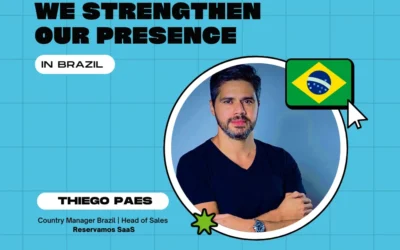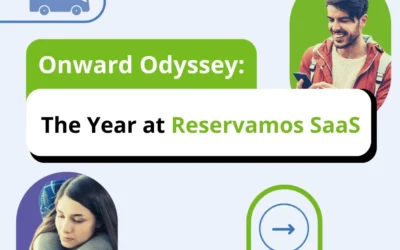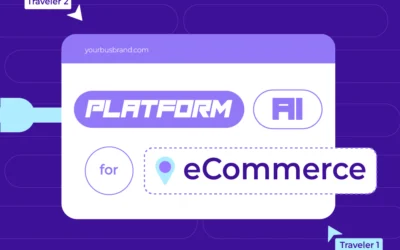On April 25th, we hosted our second webinar of the year titled 'BrainPROS: The Future of Smart Pricing', led by Camilla Brugali, Product Manager of BrainPROS, our Revenue Management system. https://youtu.be/isLzpNQIBZ0?si=tJvC7KsQGCBkMC0i We continue with our webinar...
Bus evolution
Reservamos SaaS introduces Thiego Paes as Country Manager for Brazil
With this new appointment, Reservamos SaaS strengthens its presence in Brazil, and advances its commitment to drive the digital evolution of the bus sector throughout the Latam region. At Reservamos SaaS we are committed to the mission of leading the digital...
Introducing Reservamos SaaS Achievements in 2023!
At Reservamos SaaS, we take pride in the specialized talent we've cultivated over time to drive the bus sector across the LatAm region. That's why we've prepared a summary of the most notable achievements of 2023. Each innovation and success reflects the diligent...
Reservamos SaaS generates linkage spaces between bus companies in Mexico and Colombia during Expo Foro 2024
During the past week, Reservamos SaaS received its allies Rápido Ochoa and Expreso Brasilia in Mexico City, to carry out different activities and meetings with leading bus companies in the transportation sector in Mexico. On February 27th, Reservamos SaaS welcomed...
Platform AI: Evolving Online Bus Ticket Purchasing
Through Platform AI, we ensure unique purchasing experiences, driven by Artificial Intelligence. Author: Adrián Cuadros, Co-founder & Head of Product, Reservamos SaaS If we think about what the online ticket purchasing experience was like 10 years ago, we'll...
Boosting eCommerce for bus companies with Artificial Intelligence
Last February 26th we held our first webinar of the year called Online Sales: Boosting eCommerce for bus companies with Artificial Intelligence. https://youtu.be/sWukOKuwcnM The main objective of this meeting was to share what we have achieved in the sector through...






